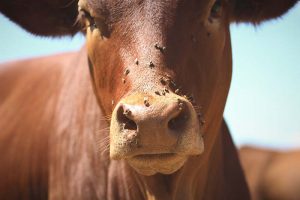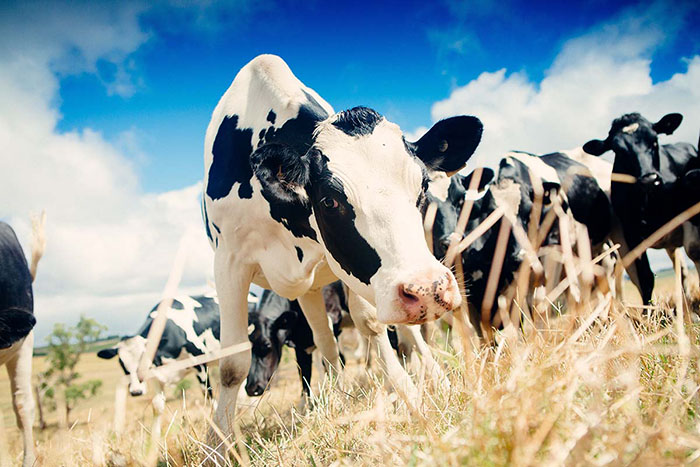How To Beat The Summer Heat
Most farms had a pretty good spring with timely rain. Hopefully your hay sheds are full and the silage is stacked away. Summer is always great especially when the Aussies are thrashing the Poms at cricket but it does present certain challenges. Here is a list of a few of them along with some solutions.
Dry feed being wasted — Every year the grass goes from lush green, to stemy seed heads before turning yellow and eventually into standing straw. This year we were lucky to have a green December but pastures are now turning up their toes in most places. As this process occurs the pasture digestibility drops and so does palatability. If cows won’t eat it, dry feed ends up being an expensive fire hazard, a comfortable bed for cows to rest on and as we have found out, a good place for army worm moths to lay their eggs on.
What happens to the pasture is considered ’normal’ but if you think about it there could easily be one tonne per hectare of grass wasted on every farm at the end of the season. Wouldn’t it be better to get that feed into the cows? There are several ways of achieving this profitably. Our first recommendation would be to feed higher protein in the dairy and also add some di-calcium phosphate to the ration. Another feed additive is Flaveco, that promotes fibre digesting bugs in the rumen.

Heat Stress — The hot weather has already hit. There is a natural substance created by green plants when they photosynthesize called betaine that is used by the cows to regulate temperature and moisture in and out of the cell, and energy metabolism. Unfortunately, the supply of betaine from green feeds dries up at precisely the same time summer hits. The main effects of heat stress on cows are a lack of appetite and increased maintenance requirement. Together those normally result in lost milk production and/or protein test. Betaine, at 10 cents per cow per day,great value when you consider the potential to save a litre of two of milk. If it gets too hot some cows can get very sick or even die. There is only one way to see how betaine might work with your herd and that is trying it in your next load.
Pests in pastures and crops. In January as explained the army worms will bury themselves under plants and re-emerge 6 weeks later as moths. It doesn’t mean they will be gone. The moths will fly around looking for old dry feed to lay their next batch of eggs on. The other pest that will start raising its ugly head soon will be diamond back moths in brassica crops. We have heard that ‘Success Neo’ is a very good insecticide for caterpillars. Talk to your chemical suppliers about how to use it. Regardless of whether you grow crops or not your pastures still need protecting. Make sure you start monitoring farm areas with cracking soils from late January as crickets will appear soon too.
Don’t forget about starch — Reid Stockfeeds have spent September, October, November and December talking about protein and why you need to lift protein in the dairy. All of this still holds true but it is important to remember the energy source too. Reid Stockfeeds make cereal based pellets and crushed grains, the bulk of the energy in our rations comes from starch which you can’t grow yourself.
The bugs in the rumen ferment feeds into volatile fatty acids, some of which (propionate) are more efficient at making milk. Starch is the best precursor to making propionate and unfortunately there is no easy or cheap way of growing it on the farm. Crushed grain or pellets are the best value way to balance your cow rations for starch.
If you are serious about making cheaper milk then give us a call and we will explain to you how we are developing a more efficient farming system based on more home grown feed complimented by quality grain in you silo. We have the runs on the board and would be delighted to show you how to make more money the Reid way.
